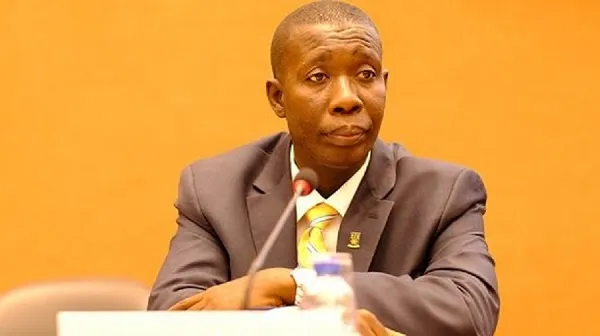Economist Urges Bank of Ghana to Prioritise Cedi Stability Amid Sharp Currency Swings
Economist and Senior Lecturer at the University of Ghana, Professor William Baah-Boateng, has called on the Bank of Ghana (BoG) to prioritise exchange rate stability as a key macroeconomic objective to safeguard the economy from the adverse effects of frequent currency fluctuations.
Speaking in an interview on Monday, October 20, Prof. Baah-Boateng cautioned that both the appreciation and depreciation of the cedi could distort business planning, erode export margins, and reduce government revenue.
“Stability is the best. Appreciating and depreciating are not the best. I’m concerned about the recent one. We were at GHS12 and straight away we’re moving into the GHS10. When you calculate the percentage, it will go around 20%, and it will hurt some aspect of the economy and benefit some aspect of the economy. But when you put them in totality, you will see that the economy will not benefit,” he stated.
Appreciation Risks Government Revenue, Cocoa Export Margins
Prof. Baah-Boateng explained that the recent appreciation of the cedi, while seemingly positive, could have unintended fiscal consequences, particularly in the export sector.
“Now that it [cedi] has moved from GHS12 to GHS10, expect that government revenue will take a hit. It will reduce the margin of export of cocoa. The appreciation will erode almost everything, and farmers will not benefit as they would,” he noted.
He urged the Central Bank to act decisively to prevent sharp swings in the currency’s value, stressing that excessive volatility undermines business and investor confidence.
“I’m expecting that the Central Bank will not allow the cedi to go up and come down. When we got around GHS10.5, we shouldn’t have allowed it to depreciate to GHS12.5 and now come back to GHS10.5; that kind of difference is too big,” he cautioned.
BoG Clarifies FX Management Framework
Governor of the Bank of Ghana, Dr Johnson Asiama, has clarified that the Central Bank’s current foreign exchange management strategy focuses on smoothing volatility rather than deliberately strengthening the local currency.
Speaking during the IMF/World Bank Governor Talk Series themed “From Crisis to Confidence: Ghana’s Journey to Macroeconomic Stabilization”, Dr Asiama dismissed suggestions that the BoG is engaging in market interventions to artificially prop up the cedi.
“Essentially, what we do is to smooth excessive volatilities, and that is what our framework has been about. There were allegations that we were intervening in the markets, but that was not exactly the case,” he explained.
Dr Asiama revealed that between the second and third quarters of 2025, the Central Bank made several large foreign currency payments amounting to billions of dollars — including settlements to Independent Power Producers (IPPs) and some domestic bondholders — amid a temporary drop in remittance inflows.
Remittance flows, which typically provide over US$6 billion annually in foreign exchange, saw a short-term decline during that period, prompting the BoG to step in to maintain orderly market conditions.
“We do not over-support the markets at all. All we seek to do is to limit volatilities to ensure smooth market dynamics. That’s the framework we’ll maintain going forward,” Dr Asiama assured.








